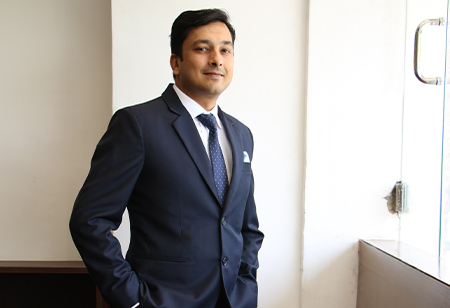We often assume that wealth comes from striking gold in the stock market, buying the right piece of real estate, or discovering some secret investment formula. But the real foundation of wealth is far simpler, and far more empowering. Your investments only grow the money you’ve already earned; it is your skills, your work, your business, and your ability to create value that generate income in the first place.
Once this fundamental truth sinks in, your relationship with money transforms. You stop searching for shortcuts and start focusing on the habits that protect and grow your earnings over time. Your income becomes the foundation; your savings, long-term goals, and financial discipline become the pillars. By the time you reach 35, mastering just a few core habits can set you up for a lifetime of financial stability. These habits aren’t complicated; they simply require consistency, commitment, and the willingness to stay the course even when temptation pulls you away.
1. Acknowledge the Real Savings Formula
Many believe savings are whatever remains after spending, but this mindset is the biggest reason people fail to build wealth. The correct approach is straightforward:
Expense = Income – Savings.
You decide how much to save first, then build your lifestyle around what remains. Whether you fix 10%, 20% or more, this single habit creates discipline. Instead of hoping there’s money left at the end of the month, you spend with intention. Over time, this shift turns loose spending into purposeful saving, one of the strongest foundations of wealth creation.
2. Avoid Temptations That Take You Off Course
In today’s world of information overload, distractions are endless. As soon as you begin saving and accumulate a small balance, you’ll encounter “opportunities”, shiny property deals, high-return schemes, or investments that promise quick profits with minimal effort.
But what if the project is delayed? What if you lose liquidity? What if your returns vanish while you wait?
Temptations always look attractive at first glance, especially early in your wealth-building journey. Real wealth, however, is built through discipline and consistent progress, not by chasing every exciting-looking idea that comes along. Staying committed to your long-term plan is the only proven way to build financial security.
3. Consider Inflation and Taxes
Most people think in terms of gross returns, but your real wealth depends on what you get to keep. Two silent wealth eroders, inflation and taxes, must always be factored into your decisions.
If your returns don’t outperform inflation, your purchasing power is shrinking. A statement showing 10% returns may feel satisfying, but once taxes are deducted, it may drop to 6–7%. The question is not:
Also Read: Financial Management in NBFC-MFIs: Growing with Prudence
“How much am I earning?” but “How much do I get to keep?”
Thinking this way helps you evaluate investments based on long-term value instead of impressive but misleading numbers.
4. Conduct Your Own Research and Build Conviction
One of the most underrated money habits is developing your own understanding. When you invest purely on someone else’s advice, whether from an advisor, colleague, or friend, you are borrowing their conviction. Borrowed conviction rarely survives difficult market phases.
If markets dip or the economy slows, the instinct to exit immediately is strong, especially when you never truly understood or believed in the investment. But when you learn, analyze, and form a view independently, you build conviction that helps you stay steady even in tough times. This habit separates average investors from exceptional ones because it minimizes emotional decision-making.
5. Seek Out a Coach or Advisor for Guidance
While independent thinking is essential, a financial advisor remains invaluable. Money decisions are emotional, and emotions cloud clarity. A good advisor helps test assumptions, validate decisions, and bring data-driven perspectives. They act as a partner when uncertainty rises and help prevent costly mistakes. Their experience can save you years of trial, error, and stress.
A Final Thought
“Rich” is a relative term, dependent on lifestyle, responsibilities, and personal aspirations. But financial strength, discipline, and security are universal goals. By mastering these five habits early, you place yourself in control of your money rather than allowing money to control you. At that point, wealth is no longer a distant dream; it becomes a natural outcome of the life you’ve built.
About the Author
Sachin Jain is the Managing Partner at Scripbox, bringing over 20 years of experience in wealth management. He has worked with top financial institutions like HDFC Bank, ABN AMRO, CITI SMITH BARNEY, and Standard Chartered Private Banking. In 2015, he founded Mymoneygain Consultants, which later partnered with Scripbox. A NISM & CRISIL Certified Wealth Manager, he helps high-net-worth clients with investment planning. Beyond his work, Sachin is actively involved in BNI, JITO, and Goonj, supporting community initiatives. With a strong focus on both finance and social impact, he is dedicated to helping people grow and manage their wealth effectively.


